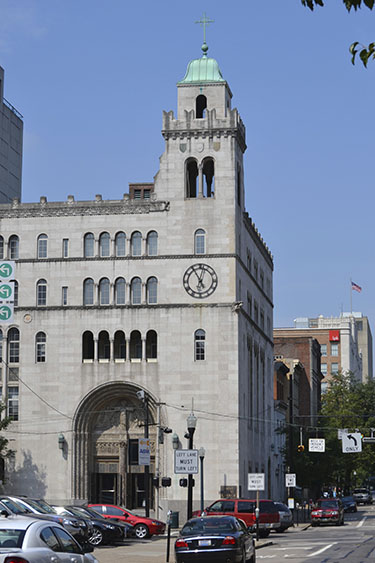Marriage case reform: What it means locally

By John Stegeman
The Catholic Telegraph
With the issuing of two documents Tuesday morning, Pope Francis announced several changes in the church’s procedure for issuing declarations of nullity pertaining to marriages.
No official English translation of the motu proprios has been made available at this time, but various Vatican correspondents and news agencies are beginning to share a picture of the changes. Two motu proprios were issued by the Holy Father, one dealing with the Latin Rite and one with the Eastern rites. The Latin rite document is called “Mitis Iudex Dominus Iesus” (“The Lord Jesus, the Gentle Judge”). The Italian and Latin text of the documents can be viewed HERE.
Sister of Mercy Victoria Vondenberger, director of the Archdiocese of Cincinnati tribunal office that oversees marriage cases, said she had only seen an unofficial summary of the document as of Tuesday morning. She stressed that no changes are official until the document arrives in the archdiocese from Rome, even if it is released earlier on the Vatican website. It further appears that no changes are intended to take effect until December 8, the beginning of the Year of Mercy.
“We’ve known this was coming for quite some time,” she said. “I was on a task force for the Canon Law Society of America last October. Our task force made suggestions to Rome for what things we thought would streamline the process.”
The biggest change appears to be the dropping of a mandatory appeal. Under the current procedure, if a petitioner (person seeking a declaration of nullity) received an affirmative sentence, meaning the marriage is null, an automatic appeal would take place and a second tribunal would need to reach the same decision for an official declaration of nullity. Under the Holy Father’s new method, a single decree of nullity would suffice, which according to Sister Victoria could shave several months of time off the typical 18 month process, bringing the timeframe down to about a year.
While there is no automatic appeal in the new process, either party could still ask for an appeal. In the Archdiocese of Cincinnati, appeal cases are sent to the Archdiocese of Washington D.C.
Pope Francis goes on to say, in unofficial English summaries, that the tribunal process should be free of charge.
“The other big thing is the Holy Father is asking every diocese not to charge fees for the marriage cases,” Sister Victoria added. “There are some places in the U.S. where fees are close to $2,000 for a case. Here in Cincinnati the fee has been a mere $300 which isn’t that much and we’ve always provided for those who truly can’t afford to pay.”
Not all cases locally require a formal case which requires the $300. Some are simpler “lack of form” cases which can cost as little as $35.
While there will certainly be a great deal of discussion related to the motu proprios, Sister Victoria brought up an important distinction in terminology. Colloquially, many Catholics and others refer to an affirmative declaration of nullity as “getting an annulment,” that terminology isn’t entirely accurate. The tribunal process cannot make a valid marriage invalid, but only seeks to investigate whether a valid union existed in the first place.
“Technically to annul is an active verb, which means to make something null,” Sister Victoria said. “We don’t do that. We declare it always was null from the moment of consent, from the moment of the wedding.”
For more information on this developing story, see the Catholic News Service report HERE. For an unofficial overview of the changes known so far, visit apologist Jimmy Akin’s blog at the National Catholic Register HERE.
Posted Sept. 8, 2015













